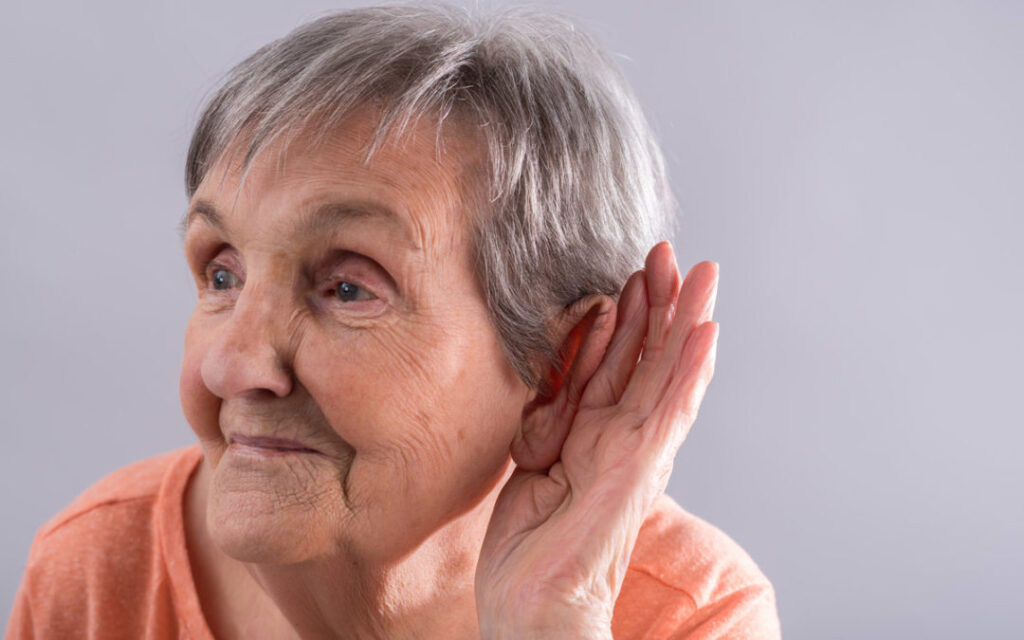The inner workings of the human ear are truly a wonder to behold. Each element is finely tuned to work in sync with the next to turn sound vibrations into what we hear. Everything works in perfect balance to create the miracle of sound. That delicate nature means, unfortunately, that the effectiveness of our hearing tends to decline as we get older. Even if you’ve taken proper care to avoid prolonged exposure to noise and other damage risks you could still be at risk for mild or moderate hearing loss as you age, especially if it runs in your family. It’s estimated that a third of adults from 65 to 74 will experience some form of hearing loss; that number increases to about half at age 75 and older.
While many adults who experience hearing loss will remain at the mild or moderate stage of loss, it’s very important to maintain control over your hearing. Any level of hearing loss and cause problems like difficulty communicating, missing important phone calls and audio cues (like honking horns while driving), and even causing further damage to the ears by listening to music or the television too loudly.
Each stage of hearing loss has its own set of warning signs and symptoms:
Symptoms of mild hearing loss
- Some difficulty with conversation in moderately loud environments
- Some words seem muffled or mumbled
- Occasional difficulty hearing radio or television at a normal volume
Signs of moderate hearing loss
- More difficulty understanding speech, especially in group conversations and loud environments
- Often listening to radios and televisions at higher volume
- Some ringing in the ears
Signs of severe & profound hearing loss
- Nearly all sound is inaudible regardless of volume or environment
- Pain and/or pressure in the ears
- Ringing in the ears
- Dizziness
- A sudden change in hearing
If you’re experiencing these symptoms shown above in red, you should see a doctor immediately. Severe and profound hearing loss symptoms could be caused by ear infections, brain tumors, or other critical medical conditions.
What is high frequency hearing loss?
High frequency hearing loss causes difficulties with hearing specific types of sounds:
- Higher-pitched voices – women and young children especially
- Beeping sounds and alarms
- Birds and wildlife
Living with mild to moderate hearing difficulty
While you should always see a doctor if you have questions about your hearing, there are steps you can take immediately that may help with typical situations such as understanding conversations in restaurants, hearing your grand kids, etc. Many types of sound-amplifying devices are available over the counter without the need for a visit to an audiologist for a prescription hearing aid fitting. These devices, called Personal Sound Amplification Products (or PSAPs), are wearable right out of the box, and are very affordable. The wearer can customize the settings to suit specific needs or situations.
Ear Sound Amplifier (PSAPs) – The Solution!
The wearer can customize the settings to suit specific needs or situations. The ear sound amplifier options that we have available are sure to provide some options that will undoubtedly help ease the frustration of losing hearing and help you hear again. If you’re skeptical about the quality to expect from our ear sound amplifiers, click here to see what other customers have to say about this awesome product. Maybe you still aren’t sold and think that hearing aids would better assist in getting your hearing out. Check out our discussion on hearing aids vs a better hearing solution.

